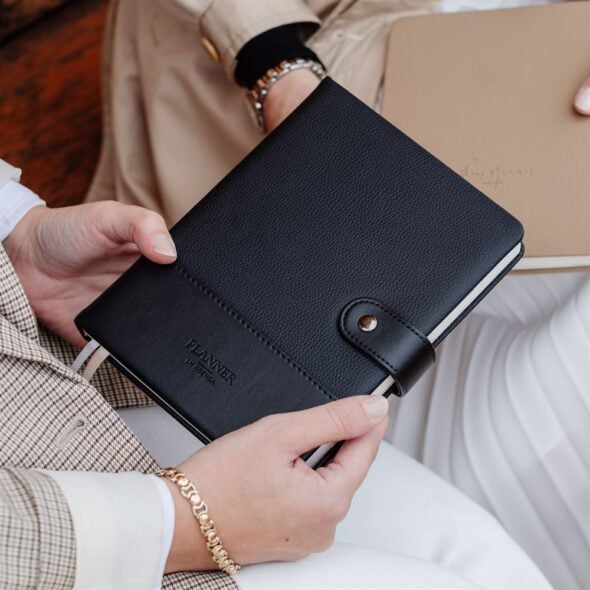People often avoid prioritising self-care, putting their wellbeing on the back burner while they concentrate on work, family, commitments and the daily grind. However, consistently feeling low, unmotivated, fatigued or irritable is something that shouldn’t be ignored. Dr Preeya Alexander, who you may have seen on TV or online as The Wholesome Doctor, digs deep into self-care.
Self-care explained
Self-care to me is having the courage to put yourself first for a moment, ensuring that your mental and physical wellbeing is OK. As a young working mum, I find self-care hard to prioritise (like many of us do) but I try to make a conscious effort to put myself first. This enables me to be a more patient and healthy mother/wife/daughter/GP and friend.
Did you know our award-winning planners and journals are designed in collaboration with industry experts? They feature mindset, productivity and leadership content to inspire and empower you.
How to know you need to focus on your wellbeing
How to get started with self-care
You need to have the courage to put yourself first and it isn’t always easy! I find women are often the most reluctant to prioritise themselves. They’re continually putting family first and when I ask about their overdue cervical cancer screening test or mammogram, they look at me sheepishly. I often have to give my patients permission to be slightly selfish and take some time out. Mum guilt is a real problem and a barrier to good self-care – I know this first hand.
The best first step is acknowledging you could do better at your self-care. The next step is having the courage to lock some time in and telling the world/jobs/washing/children/
Self-care myths
It doesn’t have to be hard or expensive. When I discuss self-care, I feel like my patients initially think I mean a pamper treatment or a long lunch. While both would be wonderful, a simple 30 minute walk on your own or a 15 minute meditation is self-care. It doesn’t have to be fancy!
What jeopardises wellbeing
Lots of things jeopardise wellbeing! A diet high in fatty processed foods can be damaging for physical wellbeing with a higher risk of obesity, type 2 diabetes, fatty liver, heart disease and stroke. A lifestyle with heavy alcohol intake (more than two standard drinks a day) can increase the risk of breast and bowel cancer. There are also lots of things that can jeopardise mental health like poor sleep quality/habits, high-stress environments, relationship issues or financial stressors.
Self-care works!
Self-care for women
Women are very often the “do-ers” or the “glue” of the family and I talk about the female mental load to my patients. Most of us are always thinking of what needs to be done – cooking dinner with leftovers, laundry, walking the dog, ensuring the toddler has spare undies in their childcare bag, picking up packages from the post office, wondering how we will get to work on time, whether or not we have clean underwear for the week ahead and how on earth we’ll get the time to find a present for a family birthday on the weekend.
For a lot of us, we are constantly writing lists and ticking jobs, which can be seriously draining! It’s OK to feel exhausted sometimes, but it’s so important to know that simple self-care is crucial. Take 20 minutes to read, exercise or see your GP for your OWN health issues (and not your child’s). It might just be the thing that stops you (and the family unit) from collapsing!
Get more out of every day, at work and at play, with our range of Day Organisers that will up your game. Its unique layout will clarify your priorities, stimulate productivity and give you a daily dose of motivation.
About Dr Preeya Alexander

Dr Preeya Alexander is a medical doctor who is passionate about all things ‘prevention’ in medicine. Dr Alexander has made TV appearances sharing her tips, experiences and medical based thoughts to encourage discussion and trends toward healthier living.
You can follow Dr Alexander on Instagram @TheWholesomeDoctor.



